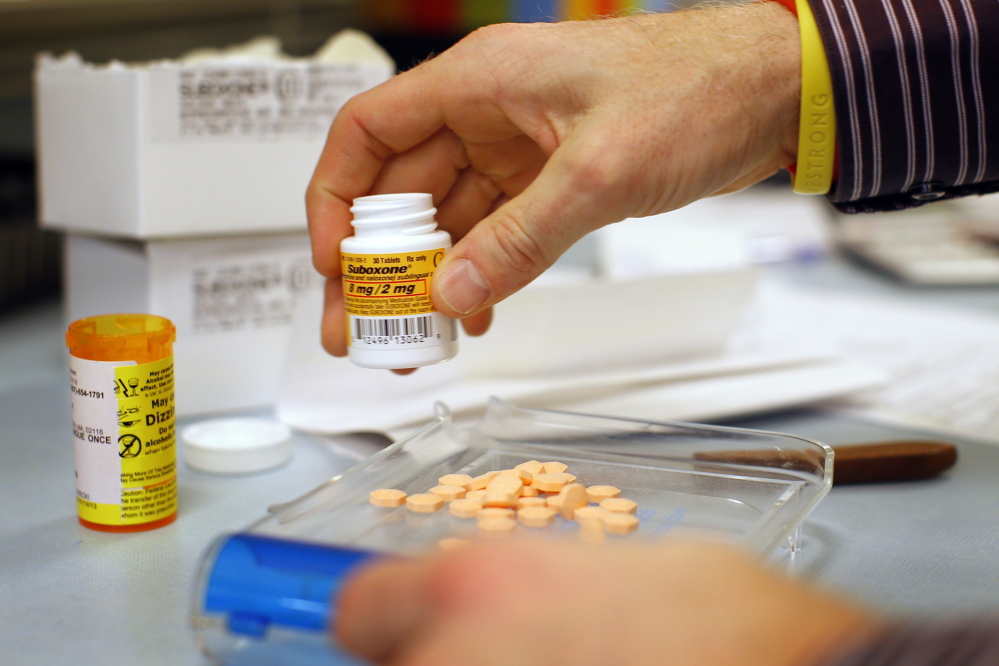‘Product hopping” is a tactic used by some drugmakers to keep generic alternatives off the market by making superficial changes to the formulas of their medications. It’s a way to extend patent protections and preserve a monopoly that forestalls price competition.
It’s also against the law.
We all have to pay when drug prices are too high, either at the cash register or through our taxes and insurance premiums. But when we are talking about artificially inflated prices for drugs that can combat addiction, some people pay with their lives.
So, we are happy to see Maine join the lawsuit against Indivior, the manufacturer of Suboxone, alleging that the company made an insignificant change to the delivery system of the opioid addiction medication to keep a generic version off the market in the middle of a public health crisis.
Just as with the makers of the allergic-reaction antidote EpiPen, which has increased in cost fivefold in the last seven years, the government should not allow companies to abuse the patent laws to enrich themselves at the expense of people’s suffering.
Medication-assisted treatment is the gold standard for treating dependence on heroin and prescription opioids. People receiving it as part of their treatment are 75 percent less likely to die of an overdose than people who are not, according to a study by the National Institute on Drug Abuse.
Suboxone reduces cravings for opiods in addicts, allowing them to work, seek therapy and live normal lives. Unlike methadone, another addiction maintenance drug, it can be prescribed by a physician and distributed by a pharmacy instead of a clinic.
Indivior, a British company, had a monopoly on Suboxone for seven years, making $1 billion on sales in the United States.
Just before the exclusive period was up and a generic version of the drug was hitting the market, Indivior changed the way the drug is delivered from a pill to a dissolving film. Since there was no generic version of the drug in film form, consumers had to pay the full sticker price for the brand-name version.
Price is not the only hurdle that keeps addicts away from medication-assisted treatment – it’s not even the highest one.
There are too few doctors who can write prescriptions for Suboxone, and those who can have artificial caps on the number of patients they can treat. And some policymakers have an abstinence-only bias when it comes to drug treatment that pushes public funds to other, less effective treatment methods.
But when we are experiencing a record number of fatal overdoses, there is no barrier to medication-assisted treatment that is too low to be considered a serious problem, and there should be no tolerance for profiteering.
The states are right to sue, if for no other reason than the message it sends to drugmakers looking to product hop. This practice should end.
Send questions/comments to the editors.



Success. Please wait for the page to reload. If the page does not reload within 5 seconds, please refresh the page.
Enter your email and password to access comments.
Hi, to comment on stories you must . This profile is in addition to your subscription and website login.
Already have a commenting profile? .
Invalid username/password.
Please check your email to confirm and complete your registration.
Only subscribers are eligible to post comments. Please subscribe or login first for digital access. Here’s why.
Use the form below to reset your password. When you've submitted your account email, we will send an email with a reset code.